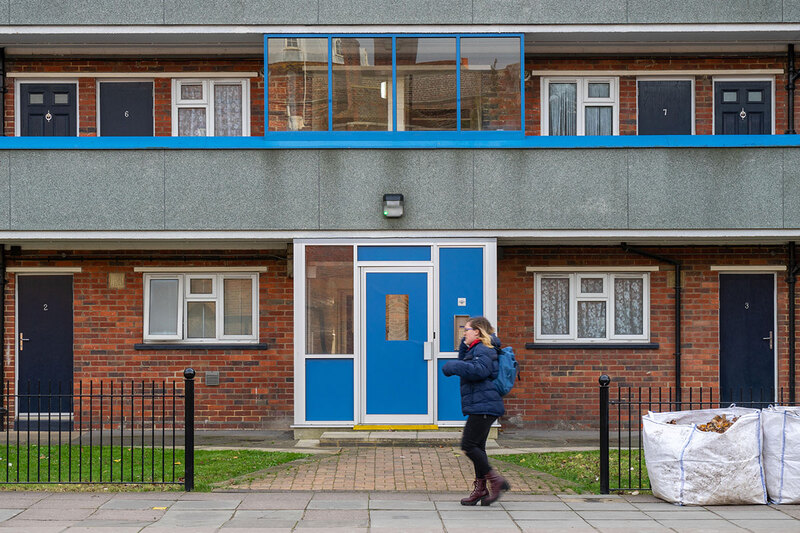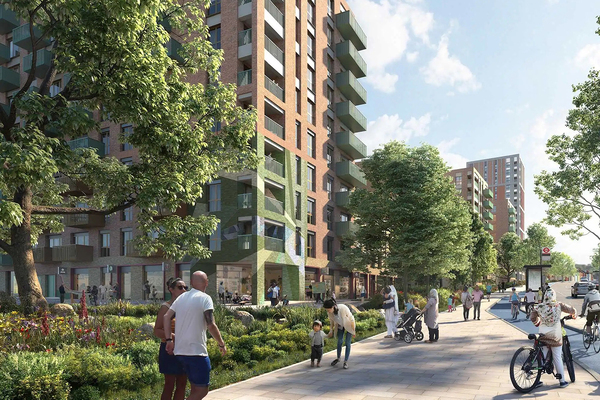You are viewing 1 of your 1 free articles
Research reveals 45% of London’s social renters have experienced prejudice or discrimination
Nearly half of London’s social renters have experienced prejudice because of their housing status, a survey by the capital’s largest providers has found.
The G15 found that of the 3,000 residents surveyed, 45% have experienced prejudice or discrimination because of their housing status, while 35% described feelings of embarrassment.
The findings were published in a new report, Taking the Stigma out of Social Housing: The Residents View.
It was sponsored by the G15 residents’ group, a forum set up to deliver resident-led change within the housing sector. The report was formally launched at an event in parliament earlier today.
The most common source of stigma for residents was interactions with landlords, cited by 43% of respondents. Other sources included interactions with customer service agents, such as banks and mobile phone companies (24%), and dealings with official authorities, such as the police (24%).
According to the research, stigma also extended into professional and personal areas, with 18% reporting a negative impact on their employment or career opportunities and 14% feeling that it affected their dating lives.
Residents highlighted media portrayals of social housing as the most significant driver of negative perceptions.
Sensationalist reporting and TV programmes such as Benefits Street were repeatedly identified as having shaped “misleading stereotypes, unfairly portraying social housing residents as criminals, unemployed, or reliant on welfare”.
Language used by politicians when talking about social housing and residents, and government housing policy, ranked second and third respectively in terms of causes.
In the foreword to the report, Daisy Armstrong, chair of the G15 residents’ group, said: “The findings in this report deliver a clear call to action. Stigma must be addressed at every level, starting with those who provide and manage our homes.
“Grenfell’s aftermath has reshaped how social landlords operate, with new consumer standards requiring more resident involvement. But to enact real change, this involvement must be genuine, not a tick-box exercise.”
She said housing providers “must embed residents’ perspectives” into every decision, “humanising their services to improve lives”.
“Regulatory changes alone won’t solve stigma. It will require a deeper cultural shift across individuals and organisations alike.
“The change we need won’t happen overnight, but it begins with listening. It begins with seeing us, not as labels or stereotypes, but as people who deserve respect, empathy and dignity.”
The report also highlighted the benefits of social housing: 67% of residents cited the money saved by not having to rent at private market rates, which allows them to spend on other essential areas of their lives.
Alongside this, 45% reported that social housing positively impacted their family life, while 42% noted improvements in their physical and mental health.
Fiona Fletcher-Smith, chair of the G15 and chief executive of L&Q, said the report “should be a wake-up call to society and policymakers”.
She said: “Social housing residents are the beating heart of London – not only as essential workers but as neighbours, carers, young professionals, families, and active members of their communities.
“We must challenge negative stereotypes, confront damaging rhetoric, and ensure that our residents are treated with respect and dignity.
“After over a decade of chaotic policy and scapegoating of housing associations and their residents, it’s imperative the government continues to help us invest in homes and communities our residents can be proud of while building new homes to meet London’s housing affordability crisis.”
The G15 group of landlords also put out another piece of research this week that found how reintroducing rent convergence at £3 per week would raise an additional £773m over 10 years.
The analysis comes in response to the Ministry of Housing, Communities and Local Government’s consultation on the future of social rents.
Sign up for our tenancy management newsletter
Already have an account? Click here to manage your newsletters












